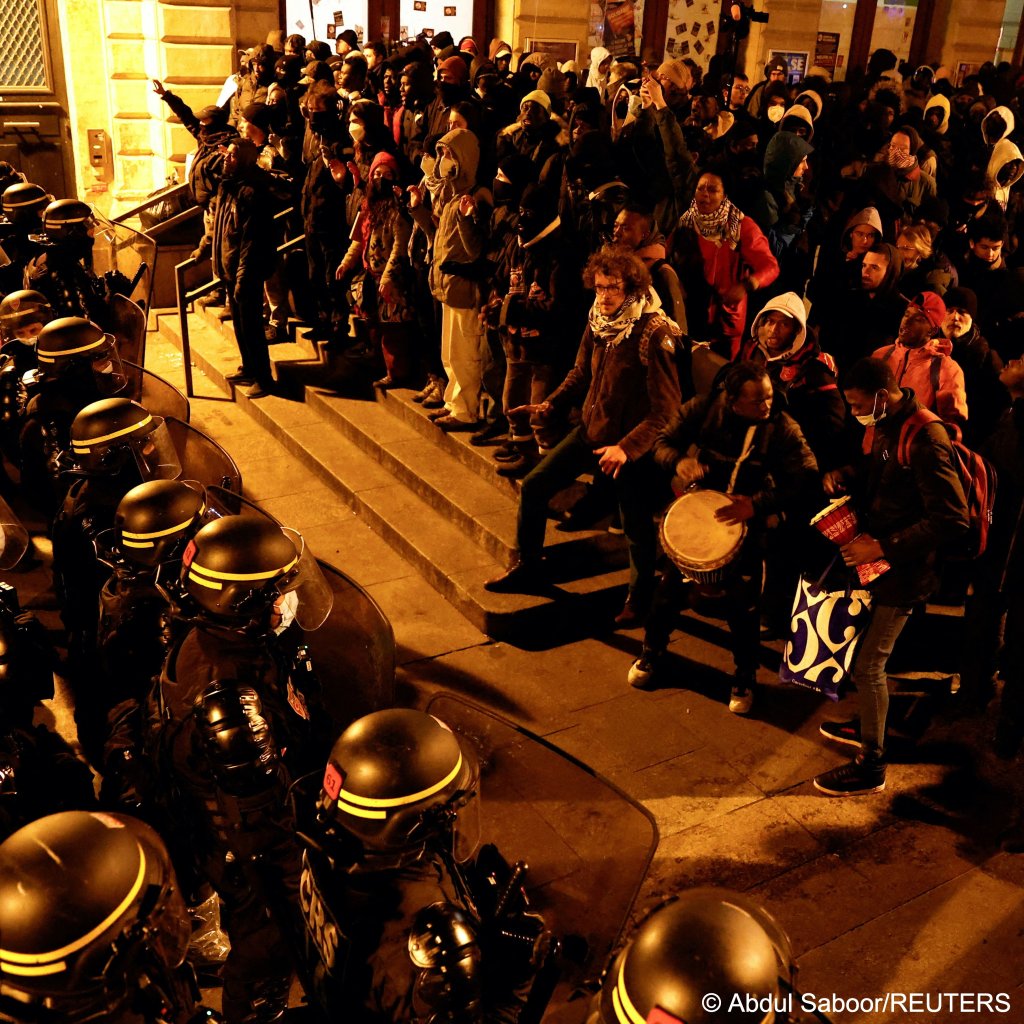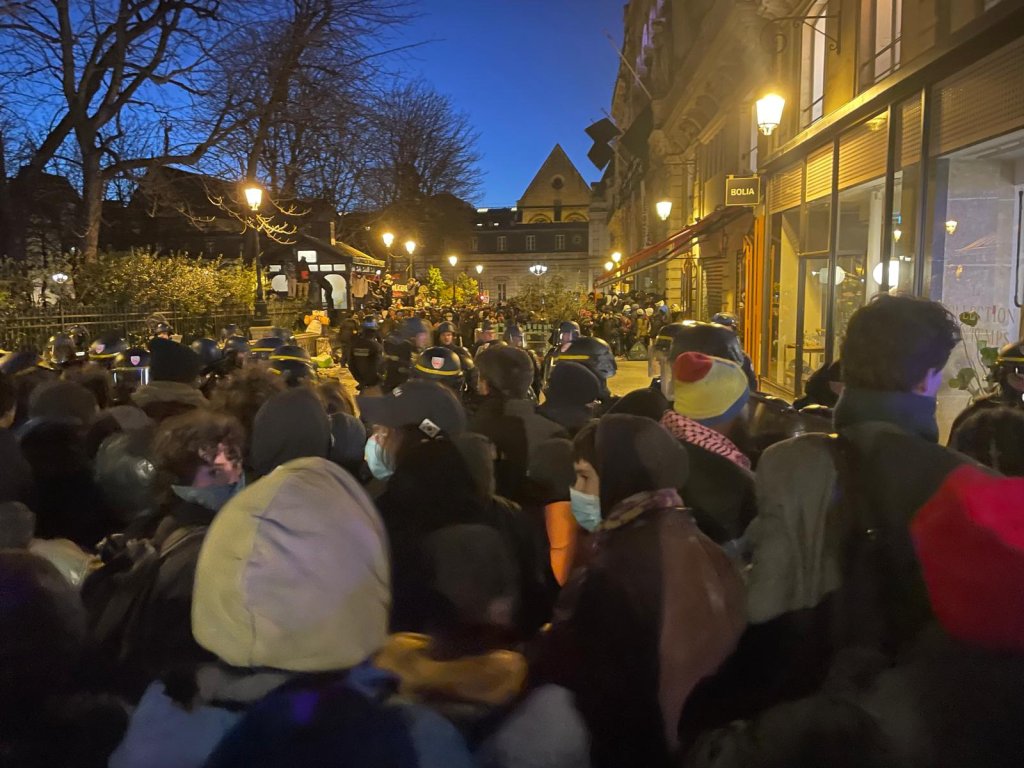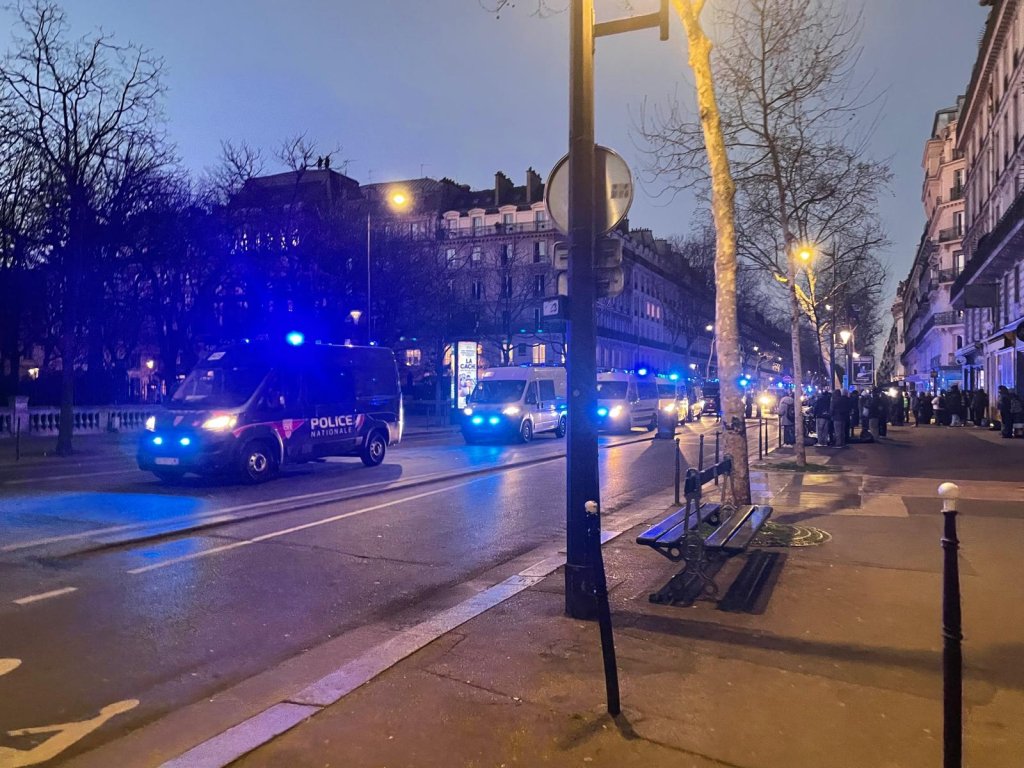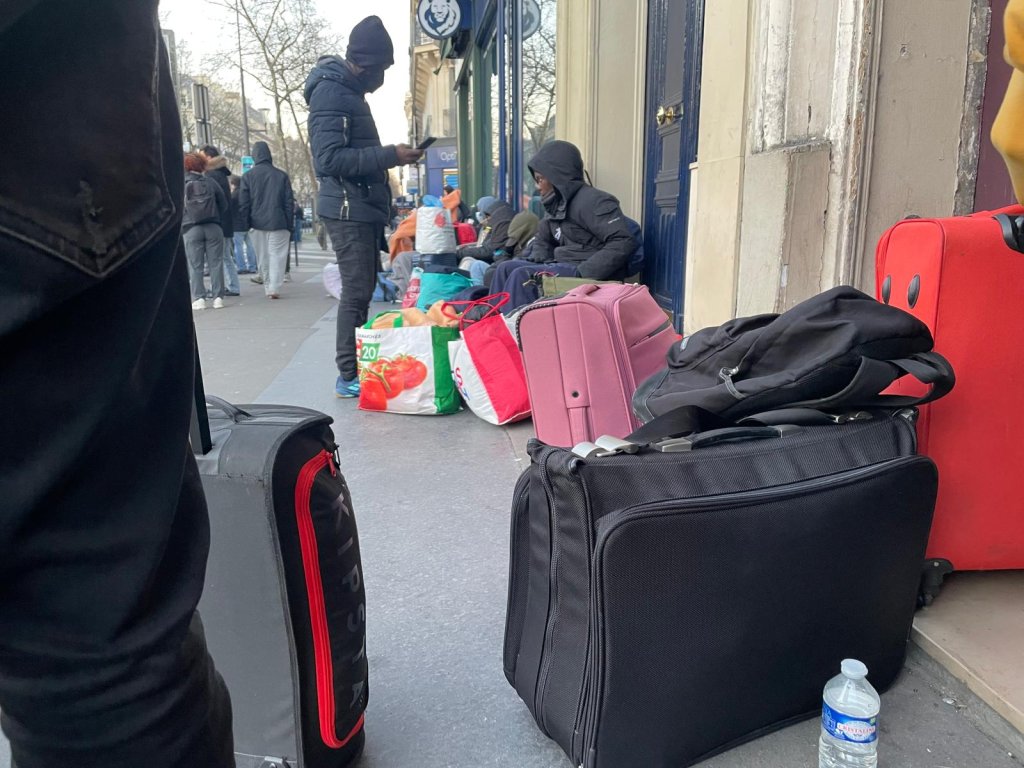Police began clearing the Gaîté Lyrique, a cultural venue in central Paris, at 5 am on March 18. The site had been occupied for over three months by hundreds of young migrants. The operation involved tear gas and batons, amid protests from those present.
The first tear gas canisters fume in front of the Gaîté Lyrique. It is 6 am on Tuesday, March 18. The sun has not yet risen. The smoke spreads, affecting the unaccompanied minors and solidarity supporters who refused to leave the premises.
Cries of protest erupt, followed by the first signs of unease. "Stop! These young people haven't done anything," one activist, escorted away by riot police, called out.
Supporters trying to defend the young migrants are present in large numbers near the entrance of the cultural venue. "Shame, shame on this government that wages war on unaccompanied minors," the hundred or so activists gathered on Boulevard Sébastopol shout. They are held back by a wide line of police officers standing about twenty meters from the theater entrance.

As early as 5 am, police deployed in front of the Parisian theatre, which had been occupied for three months by 450 young people awaiting recognition from the state as minors. On December 10, around 200 migrants assembled in the "Collectif des jeunes du parc de Belleville" (Youth Collective of the Belleville Park) had settled in the Gaîté Lyrique, joined in the following days by dozens of other foreign minors.
On March 17, the Paris police prefect issued an order ordering the rapid evacuation of the site. Laurent Nuñez cited a "disturbance of public order" as justification for the operation. He promised that accommodation solutions would be offered to the young migrants and that their administrative situation would be reviewed.
But during the night, support groups called for "resistance" against this expulsion carried out "by a racist state."

The situation quickly escalated on the morning of March 18. Leftist MP Danielle Simonnet, who was there during the 5 am evacuation, said to InfoMigrants she witnessed an "extremely violent intervention" and "numerous baton blows." According to the Paris police prefecture, 46 people were arrested during the evacuation: one for "contempt and rebellion," the others will be subject to "administrative checks" and will be "placed in administrative detention."
Furthermore, "nine were injured" in total, Prefect Laurent Nuñez stated. Among them were six migrants whose condition did not require medical attention. Three other injured people were treated: a migrant, a police officer, and a journalist. A security measure will remain in place "in the coming days," he added.
'I don't understand why they're treating us like this'
At 6:30 am, dozens of young migrants who wanted to "escape" police officers ran to take refuge on the sidewalks of neighboring streets with the few belongings they could hastily grab. Sitting against the walls of Boulevard Sébastopol, they remained there, shivering with cold, blankets over their shoulders, watching the smoke rise higher into the sky. It was 2 degrees Celsius that morning.

"I don't understand why they treat us like this," Amine*, a 16-year-old Guinean, tells us. He is looking at the police stationed on every street corner around him. "I've been here for three months [since the beginning of the occupation of the cultural venue, editor's note]. Have you seen how they came to mistreat us? It's very complicated," he says. Amine will not board the buses provided by the prefecture to temporarily house him in the region. "Why would I go anywhere else? I'm used to Paris; I don't know anything there."
Officers from the Île-de-France prefecture responsible for emergency accommodation, wearing red vests and armbands, were present during this evacuation offering buses bound for various cities in France. But, "almost systematically," the young people refused these accommodations, "encouraged to do so by the activist groups present," according to a source at the prefecture.
"There are accommodations offered this morning, some in Paris and others elsewhere, which have been refused," Paris Socialist Mayor Anne Hidalgo said on France Inter.
The majority of young people also do not want to leave the capital because they are waiting for an appointment with a judge. All are seeking legal recognition for their minority status—and thus hope to be taken into care by the ASE (child welfare agency). "They have a case pending here, why would they leave [Paris]? It doesn't make sense," Yann Manzi, founder of the Utopia 56 association, explained.

"I just want a place to sleep. I don't want to cause any problems," Ibrahim, another young Guinean awaiting his hearing with a juvenile court judge said. "Life on the streets is hard, I have to move around all the time. If I go outside of Paris, I'll miss my [court] hearing. I'm always waiting for them to tell me the time and day. If I miss that, I'll have to start all over again."
'It's too cold to sleep outside'
The hours pass, and activists and support groups continue to sing endlessly. "Siamo tutti anti-fascisti" ("We are all anti-fascists") rings out from a street corner. Others shout “so-So-Solidarity with young unaccompanied minors" across the street, where foreign minors and activists are being kettled by law enforcement.
Then suddenly, the attacks resume. Emergency blankets are unfolded for some young migrants lying on the sidewalks. "Medic!" and "Medic!" are shouted from all sides, as people beg for first aid for the wounded.
Aboubacar*, sitting near a supermarket on the boulevard, looks shocked. "Why are they attacking us like this?" the young Ivorian pleads. He arrived in France eight months ago. "I haven't done anything wrong, I swear, I'm just waiting for my appointment with a judge, I'm not causing anyone any problems," he tells us. "It's just too cold to sleep outside, so it's better to be here, at La Gaîté," he says, his eyes reddened by the tear gas.
This occupation of the Parisian theater had become emblematic of the tensions over the migration issue between activists supporting migrants and a far right hostile to their welcoming in France. On February 28, the American billionaire and powerful ally of Donald Trump, Elon Musk, even commented on this French news: he shared an article from the British newspaper Daily Mail on the situation in Parisian theater, denouncing a "suicidal empathy" that, according to him, threatened "civilization."
*Names have been changed.
